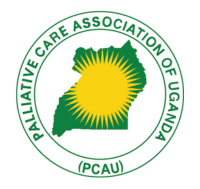By Esther Taaka
In 2022, the Ministry of Health passed the Health Management Information System (HMIS) Palliative Care registers and HMIS 105c Monthly Palliative Care reporting forms. This effectively enabled palliative care reporting through the District Health Information System (DHIS2). The approval by the Ministry of Health followed several years of advocacy and support by PCAU on the integration of palliative care data in the HMIS. PCAU Continues to effort to ensure that the over 300 health facilities accredited to offer palliative care across the country receive the required tools and training to report on palliative care. By the end of 2023, staff in 124 health facilities had been trained on Palliative Care HMIS tools. PCAU is working through a selected team of palliative care data champions located in sub-regions in Uganda to scale down sensitization, training, and advocacy for palliative care data and reporting. As the scale-up for palliative care reporting takes shape, the Ministry of Health has created a dashboard for palliative care data in the national health information system. The palliative care data champions are doing a commendable across the regions.
Please read the experience of Esther Taaka a Palliative Care Nurse one of the Palliative Care Data Champions in Uganda.
Esther Taaka
Palliative Care Nurse – Mbale Regional Referral Hospital
The Ministry of Health in partnership with the Palliative Care Association of Uganda (PCAU) launched a palliative care register where palliative care information is captured. This process started with Regional Referral Hospitals like Mbale Regional Referral Hospital where I work. The Ministry of Health and PCAU identified key focal persons in each region who would as palliative care data champions. In my region of Mout Elgon, I was identified together with my colleague Denis Wanasolo who works with JOY Hospice Mbale.
After our training as a palliative care data champion of the Mount Elgon zone, we have been able to mentor 24 health workers including staff in the records department at Mbale Regional Referral Hospital where I work. The mentorship has improved data collection because accurate and timely information is submitted to District Health Information System II (DHIS2).


Before our training and scale-down of mentorship, there was no palliative care data captured at any facility across the region. Our focus as palliative care data champions in the region has therefore been to sensitize health workers and to advocate for the utilization of the palliative care registers.
As a data champion, together with my colleague Denis Wonasolo we were able to train about 246 health workers across all cadres and including; doctors, clinicians, nurses, midwives, social workers, administrators, pharmacists, and Records officers among others. We have trained staff from the Mbale Regional Referral Hospital, staff from 5 District Hospitals, and Staff from 8 Health Center IVs (Health sub-districts).
These are some of our observations as palliative care data champions in the Mt Elgon Subregion
- All Health Facility leaders are in support of palliative care services.
- While following up on palliative care data, we found that health facilities had issues with ordering oral liquid morphine. this was rectified at most facilities.
- We observed that not all facilities that are accredited to offer palliative care in the region have qualified prescribers for all essential palliative care medicines.
- Some facilities are located in hard-to-reach areas, yet they over great services. For example, Bukwo Hospital needs special attention and follow-up.
- Each health facility needs to have a focal person following up on palliative care data, especially at the initial stages of reporting on palliative care.
Of the 14 health facilities that we have covered so far, only 4 have been able to report. Most of the other facilities need continuous follow-up and support.









Comments are closed.